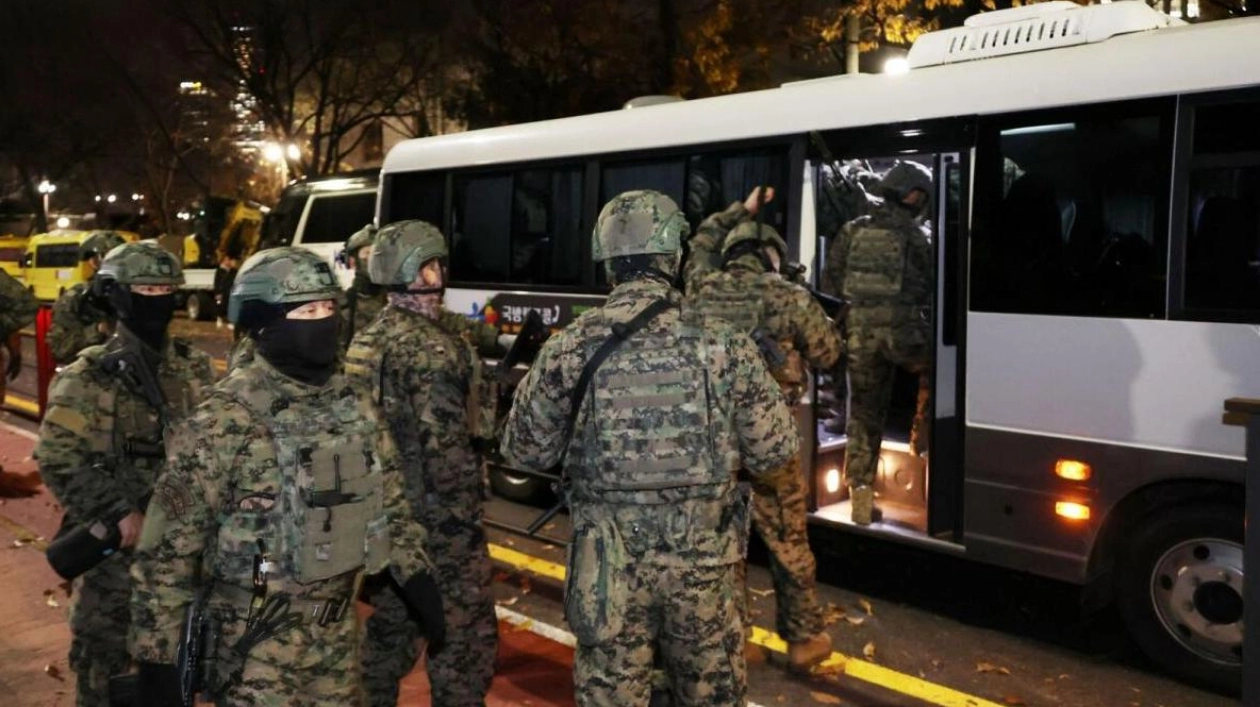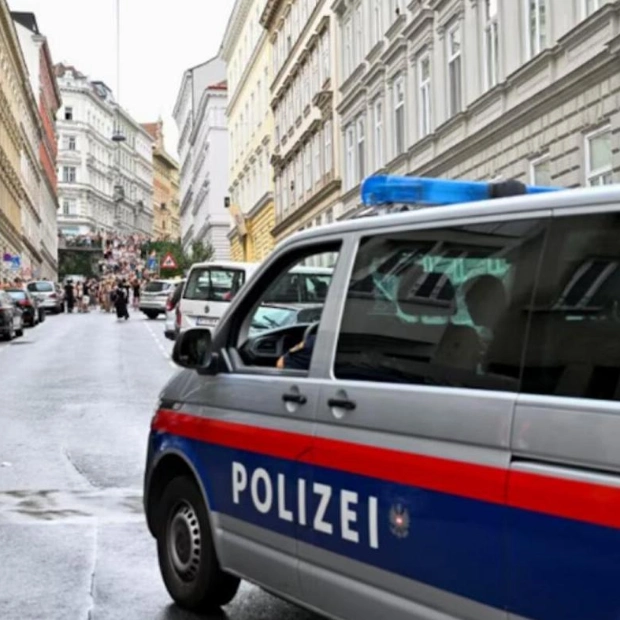Soldiers departed the National Assembly following the passage of a motion by South Korea's parliament on December 4, 2024, which mandated the lifting of martial law declared by President Yoon Suk Yeol in Seoul. Photo: Reuters
President Yoon Suk Yeol's declaration of martial law on Tuesday night shocked South Koreans and prompted a brief attempt by troops to enter parliament, as lawmakers and protesters swiftly voiced their opposition to the most significant challenge to the nation's democracy since the 1980s. The speaker of parliament deemed the martial law announcement invalid, and lawmakers voted to reject it early on Wednesday. Yoon's decision, which he framed as targeting his political adversaries, was vehemently opposed by Han Dong-hoon, the leader of his own party, who was present for the parliamentary vote and has previously clashed with Yoon over his handling of recent scandals.
Earlier, live television footage depicted helmeted troops, seemingly tasked with enforcing martial law, attempting to enter the assembly building, while parliamentary aides were seen using fire extinguishers to push the soldiers back. Yoon asserted on Tuesday night that opposition parties had hijacked the parliamentary process. He pledged to eliminate "shameless pro-North Korean anti-state forces" and claimed he had no choice but to take the measure to protect constitutional order. Shortly after Yoon's live TV announcement, crowds began to gather outside the parliament building, with some shouting: "Withdraw emergency martial law!" and others demanding: "Arrest Yoon Suk Yeol!"
The military announced that activities by parliament and political parties would be prohibited, and that media and publishers would be under the control of the martial law command. Yoon did not specify any particular threat from the nuclear-armed North, instead focusing on his domestic political opponents. This marks the first time since 1980 that martial law has been declared in South Korea. Although South Korea has had a history of authoritarian leaders in its early years, it has been considered democratic since the 1980s.
The Korean won experienced a sharp decline against the U.S. dollar. A central bank official stated that measures were being prepared to stabilize the market if necessary. Finance Minister Choi Sang-mok convened an emergency meeting among top economic officials, according to his spokesman in a text message. Yoon's predecessor, Moon Jae-in of the Democratic Party, expressed in a post on X that the country's democracy is in peril. "I hope that the National Assembly will act swiftly to protect our democracy from crumbling," he wrote in a post. "I ask the people to join forces to protect and save democracy and to help the National Assembly function normally."
The United States is in contact with the South Korean government and is closely monitoring the situation, according to a White House spokesperson. Approximately 28,500 U.S. troops are stationed in South Korea to guard against the North. A spokesman for the U.S. military command did not respond to repeated phone calls.
Source link: https://www.khaleejtimes.com






